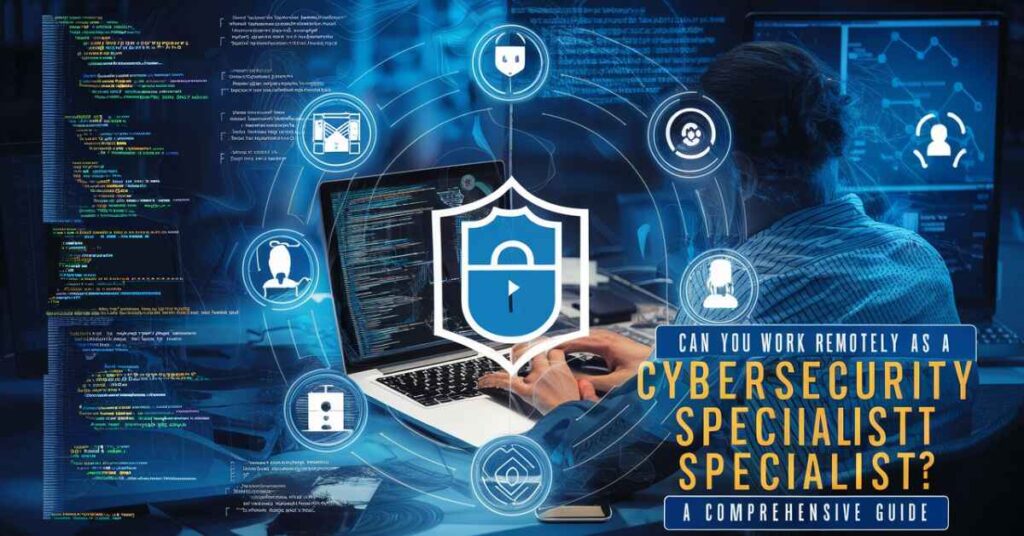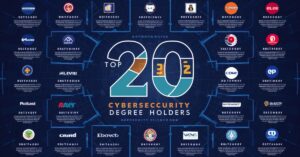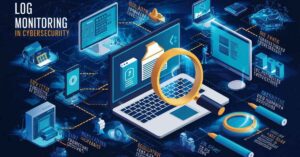In today’s rapidly evolving digital landscape, the question on many tech professionals’ minds is: Can you work remotely as a cybersecurity specialist? The short answer is a resounding yes, but the reality is far more nuanced and exciting than a simple affirmation. This comprehensive guide will delve into the world of remote cybersecurity work, exploring its possibilities, challenges, and prospects. Can You Work Remotely as a Cybersecurity Specialist? A Comprehensive Guide.
Understanding the role of a remote cybersecurity specialist
Before we dive into the remote aspect, let’s clarify what a cybersecurity specialist does. These digital guardians are the frontline defenders of our increasingly connected world, protecting organizations from a vast array of cyber threats.
Key responsibilities of a remote cybersecurity specialist
- Network security monitoring: Keeping a vigilant eye on digital traffic to spot anomalies.
- Threat detection and response: Identifying and neutralizing cyber threats in real-time.
- Implementing security measures: Setting up firewalls, encryption, and other protective barriers.
- Conducting security audits: Regularly assessing systems for vulnerabilities.
- Developing security policies: Creating guidelines to ensure organizational cybersecurity.
Remote cybersecurity specialists perform these tasks from home offices, co-working spaces, or even beachside cafes – anywhere with a secure internet connection.
Required skills and qualifications
To work remotely as a cybersecurity specialist, you’ll need a robust skill set:
- Technical skills: Proficiency in programming languages (Python, Java), network architecture, and operating systems.
- Soft skills: Strong communication, problem-solving, and analytical thinking abilities.
- Certifications: Industry-recognized credentials like CISSP, CompTIA Security+, or CEH.
- Education: Typically, a bachelor’s degree in computer science or a related field, though experience can sometimes substitute.
“In cybersecurity, your skills are your passport. Keep them sharp, and you can work from anywhere.” – Jane Doe, Remote Cybersecurity Consultant
The rise of remote work in the tech industry
The tech industry, including cybersecurity, has been at the forefront of the remote work revolution. According to a 2021 survey by (ISC)², 85% of cybersecurity professionals worked remotely due to COVID-19, and 47% reported increased productivity. Can You Work Remotely as a Cybersecurity Specialist? A Comprehensive Guide.
Impact of the pandemic on remote work
The COVID-19 pandemic acted as a catalyst, accelerating the adoption of remote work across industries. For cybersecurity, this shift presented both challenges and opportunities:
- Increased demand: As organizations rushed to secure remote operations, the need for cybersecurity experts skyrocketed.
- Skill adaptation: Professionals had to quickly adapt to securing distributed networks and remote endpoints.
- Work-life integration: The line between work and personal life blurred, requiring new strategies for balance.
Benefits and challenges of remote work for cybersecurity specialists

Working remotely as a cybersecurity specialist comes with its own set of pros and cons:
Benefits
- Flexibility: Set your schedule and work from anywhere.
- Global opportunities: Access jobs worldwide, not just in your local area.
- Reduced costs: Save on commuting and work attire expenses.
- Increased productivity: Fewer office distractions can lead to better focus.
Challenges
- Securing sensitive data: Ensuring the security of critical information outside the office.
- Team collaboration: Maintaining effective communication in a virtual environment.
- Work-life balance: Avoid burnout when work is always accessible.
- Keeping skills current: Staying up-to-date with rapidly evolving threats and technologies.
Tools and technologies enabling remote cybersecurity work
Remote cybersecurity work is made possible by a variety of tools:
- Virtual Private Networks (VPNs): Secure connections to organizational networks.
- Cloud-based security platforms: Centralized tools for monitoring and managing security across distributed systems.
- Collaboration software: Tools like Slack, Microsoft Teams, or Zoom for team communication.
- Remote desktop software: Secure access to work computers from anywhere.
Best practices for remote cybersecurity professionals
To thrive in a remote cybersecurity role:
- Create a secure home office with encrypted Wi-Fi and a separate work computer.
- Establish a routine to maintain a work-life balance.
- Overcommunicate with team members to ensure alignment on projects.
- Invest in continuous learning to stay ahead of emerging threats.
- Network virtually through online forums and virtual conferences.
Trends shaping the future of remote work in cybersecurity

The future of remote cybersecurity work looks bright, with several trends emerging:
- AI and machine learning: Automating routine tasks, allowing specialists to focus on complex problems.
- Zero-trust security models: Adapting security frameworks for distributed workforces.
- Cloud security focus: As more operations move to the cloud, so does the need for cloud security experts.
- Gig economy growth: Increasing opportunities for freelance and contract cybersecurity work.
Case study: A Day in the Life of a Remote Cybersecurity Specialist
Meet Sarah, a remote threat analyst based in Denver, working for a New York firm:
- 6:00 AM: Start the day with a security news briefing
- 7:00 AM: Join the East Coast team for daily standup
- 8:00 AM – 12:00 PM: Monitor network activity, investigate alerts
- 1:00 PM – 3:00 PM: Collaborate on threat response strategies
- 3:00 PM – 5:00 PM: Update security protocols, write reports
- 5:00 PM: End workday, but remain on-call for emergencies
Sarah’s story illustrates how remote work allows for a flexible schedule while maintaining crucial team connections and work responsibilities.
How to find remote cybersecurity jobs
To land a remote cybersecurity position:
- Specialize: Develop expertise in high-demand areas like cloud security or IoT.
- Network: Attend virtual conferences and join online professional groups.
- Build an online presence: Showcase your skills through a personal blog or GitHub projects.
- Target remote-friendly companies: Research organizations known for supporting remote work.
In Conclusion
So, can you work remotely as a cybersecurity specialist? Absolutely. The field is ripe with opportunities for those willing to adapt to the unique challenges of remote work. As cyber threats continue to evolve, so will the ways we combat them – often from the comfort of our homes.
FAQs
Can you work remotely doing cyber security?
Yes, many cybersecurity roles can be performed remotely, from threat analysis to security consulting.
What percentage of cybersecurity jobs are remote?
As of 2021, about 47% of cybersecurity professionals worked remotely full-time, with many more in hybrid roles.
How many hours do cybersecurity professionals work?
Typically 40 hours per week, on-call duties may extend this, especially during security incidents.
Entry-level cyber security jobs work from home
Many entry-level positions, such as junior security analysts or SOC operators, offer remote options.








